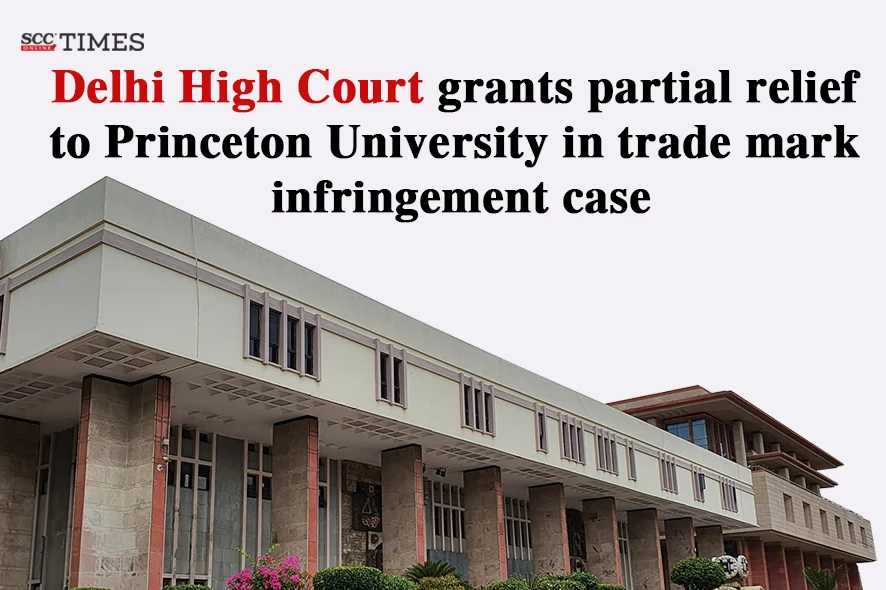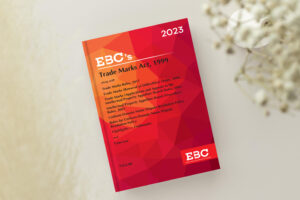Delhi High Court: In an appeal against an order dated 6-9-2023, whereby a Single Judge of the Court had dismissed an application filed by the appellant, Princeton University seeking an ex parte ad interim injunction against the respondents to restrain it from using the mark ‘PRINCETON/PRINCETON UNIVERSITY’, the Division Bench of Navin Chawla* and Renu Bhatnagar, JJ, held that while the appellant had shown itself to be the prior user of the mark ‘PRINCETON’ and that it has established its goodwill and reputation in India as well, however, since the appellants did not have an actual physical presence in India and the respondents had been using the mark for a long period of time, an interim injunction couldn’t be granted. The Court, however, granted partial relief to the appellant and restrained the respondent from using the mark ‘PRINCETON’ in establishing any new institution or society.
Background
The appellant is a prestigious Ivy League School situated in the United States of America. Founded it 1746, it is the fourth oldest institution of higher education in USA which offers various degree programs ranging from subjects in the field of Arts to Science and Technology.
The appellant owns and operates its website Princeton.edu which had been created as a one-stop destination for information regarding the appellant’s educational institution and degree programs.
Respondent 1 is an educational society constituted under the Societies Registration Act, 1860 which had been established as an ode to the Prince of Hyderabad for educating and grooming thousands (denoted by the word ‘ton’) of Princes and Princesses (denoted by the word ‘Prince’), thereafter called Princeton.
Respondent 1 had averred that the appellant had been using the mark ‘PRINCETON’ in India only since 1996, much after the use of the impugned mark by the respondents and thus cannot be stated to be prior users of the mark in India. Respondent 1 had also submitted that the appellant couldn’t claim a monopoly over the mark ‘PRINCETON’ since it was derived from the name of the place Princeton, New Jersey in USA where the university is located.
Analysis, Law and Decision
The Court stated that the Single Judge had erred in holding that the use of the mark by the appellant in India had not been established as it was not being used by the appellant but by third parties. The Court observed that the Section 2(2)(c)(ii) of the Trade Marks Act, 1999 (‘the Act’) did not stipulate that the use of the mark must be by the proprietor alone. As long as the statutory test of use is fulfilled, i.e., there is a statement made about the availability, provision or performance of the service in relation to which the mark is used, it is irrelevant if such statement is being made by the proprietor itself or by a third party.
The Court had said that,
“Once the claimant has established that there are customers for the claimant’s services in a jurisdiction, though not necessarily in a real market but through use of its mark in a more subtle way, then the claimant stands in the same position as a domestic trader and it may bring an action by establishing its goodwill in the jurisdiction in which it claims that the defendants are trying to pass off their goods under the brand name of the claimant’s goods.”
The Court had further stated that the very fact that Indian students were also being targeted by the appellant and were in fact going to the University of the appellant ‘in large numbers’, demonstrated the availability, provision and performance of the services being rendered by the appellant under its mark, thereby, establishing its goodwill and reputation in India.
With regards to the question of prior usage, the Court had noted that contrary to the respondent’s submission that once the appellant had given a certain date since it claimed to be a user of the mark in India, it could be estopped from presenting cogent proof that it had ben using the mark for far longer. The Court stated that in the instant case, the appellant had shown itself to be the user if its mark in India since 1911, much prior to the one claimed earlier.
With respect to the respondent’s contention that the appellant had obtained its registration on the basis of a letter of consent from ‘Princeton Academy Mumbai’, the Court noted that the appellant cannot be expected to take action against all infringers of its rights as a pre-condition to take action against the respondents. The respondents, as an infringer, cannot claim negative equality or immunity from legal action only on the basis that the appellant chose to settle the dispute with some party in a particular manner or chose not to proceed against the others.
The Court was unimpressed by the respondent’s argument that since the logo of the appellant and respondent were vastly different, a case of passing off was not made out. The Court reiterated the settled principle of law that even in a composite mark, there can be a predominant part of the mark entitled to a standalone protection. In the present case, the Court observed that the word ‘PRINCETON’ is a vital and important part of the mark of the appellant which is being used by the respondents for providing similar service. Merely because there is a difference in the fee structure of the appellant and the respondents, confusion couldn’t be ruled out.
On the grant of interim injunction against the respondents, the Court noted that due to the long passage of time for which the respondents have been using the impugned mark (1991), lack of actual presence of the appellant in form of an educational institution in India, and the presence of the respondents being confined only to the State of Telangana, the appellant couldn’t fulfil the test of irreparable harm and balance of convenience.
Thus, the Court held that while an interim injunction could not be granted, the respondents were restrained from using the mark ‘Princeton’ or any other deceptively similar mark for any new institution during pendency of the suit.
Accordingly, the impugned order was set aside.
[Trustees of Princeton University v. Vagdevi Educational Society, 2025 SCC OnLine Del 6296, decided on 26-9-2025]
Judgement Authored by: Justice Navin Chawla
Advocates who appeared in this case :
For the Appellant: Chander M. Lall, Senior Advocate, Nancy Roy, Ananya Chug, Annanya Mehan, Advocates
For the Respondent: J. Sai Deepak, Senior Advocate, Avinash Kumar Sharma, P. Mohith Rao, Eugene S. Philomene, Advocates



